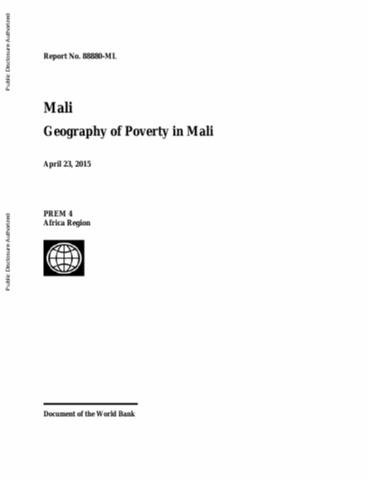The World Bank is a vital source of financial and technical assistance to developing countries around the world. We are not a bank in the ordinary sense but a unique partnership to reduce poverty and support development. The World Bank Group has two ambitious goals: End extreme poverty within a generation and boost shared prosperity.
- To end extreme poverty, the Bank's goal is to decrease the percentage of people living on less than $1.25 a day to no more than 3% by 2030.
- To promote shared prosperity, the goal is to promote income growth of the bottom 40% of the population in each country.
The World Bank Group comprises five institutions managed by their member countries.
The World Bank Group and Land: Working to protect the rights of existing land users and to help secure benefits for smallholder farmers
The World Bank (IBRD and IDA) interacts primarily with governments to increase agricultural productivity, strengthen land tenure policies and improve land governance. More than 90% of the World Bank’s agriculture portfolio focuses on the productivity and access to markets by small holder farmers. Ten percent of our projects focus on the governance of land tenure.
Similarly, investments by the International Finance Corporation (IFC), the World Bank Group’s private sector arm, including those in larger scale enterprises, overwhelmingly support smallholder farmers through improved access to finance, inputs and markets, and as direct suppliers. IFC invests in environmentally and socially sustainable private enterprises in all parts of the value chain (inputs such as irrigation and fertilizers, primary production, processing, transport and storage, traders, and risk management facilities including weather/crop insurance, warehouse financing, etc
For more information, visit the World Bank Group and land and food security (https://www.worldbank.org/en/topic/agriculture/brief/land-and-food-security1
Resources
Displaying 961 - 965 of 4906Cote d'Ivoire Economic Update, March 2015
First in a series, which aims to analyze
the recent economic and financial situation in Côte
d'Ivoire, this report analyzes the main macroeconomic
developments and structural policies of the country from
2013 until mid-2014. It also reflects on the underlying
factors of the strong economic recovery in Côte
d'Ivoire since the end of the post-election crisis, to
assess the likelihood of sustained economic growth and
Results Frameworks in Country Strategies
In 2005, the World Bank Group (WBG)
formally introduced the results framework in the country
assistant strategy (CASs) as a key tool for improving the
quality of the WBG's strategy in borrowing member
countries, maximizing the development effectiveness of WBG
assistance, and demonstrating measurable results of
international aid in fostering growth and reducing poverty.
These results matrices define the outcome indicators and
Geography of Poverty in Mali
This study discusses the impact of economic geography and (low) population density on development outcomes in Mali and explores how policies to reduce poverty can be made more effective by taking these two factors into account. The crisis in north Mali which started in 2012 and continues to date has brought questions of economic geography to the center of attention.
United Mexican States Reducing Fuel Subsidies
This paper analyzes the economic,
distributional, and environmental impact that energy subsidy
reductions and alternative compensating mechanisms might
have in Mexico. To achieve that goal, author use a
computable general equilibrium model of the Mexican economy.
They make several important changes to the original model to
build the energy subsidies (to gasoline, diesel, electricity
and liquefied petroleum gas) into the benchmark and then do
Islamic Republic of Afghanistan Agricultural Sector Review
Economic growth, job creation, and
development are central to the decade of transformation
(2015-25) and long-term security for the people of
Afghanistan. The Bank and the Government of the Islamic
Republic of Afghanistan (GoIRA) recognize that agriculture
and rural development are a key to inclusive growth, and
hence need renewed vigor and strategic long-term
investments. Further, the Bank and the GoIRA acknowledge







